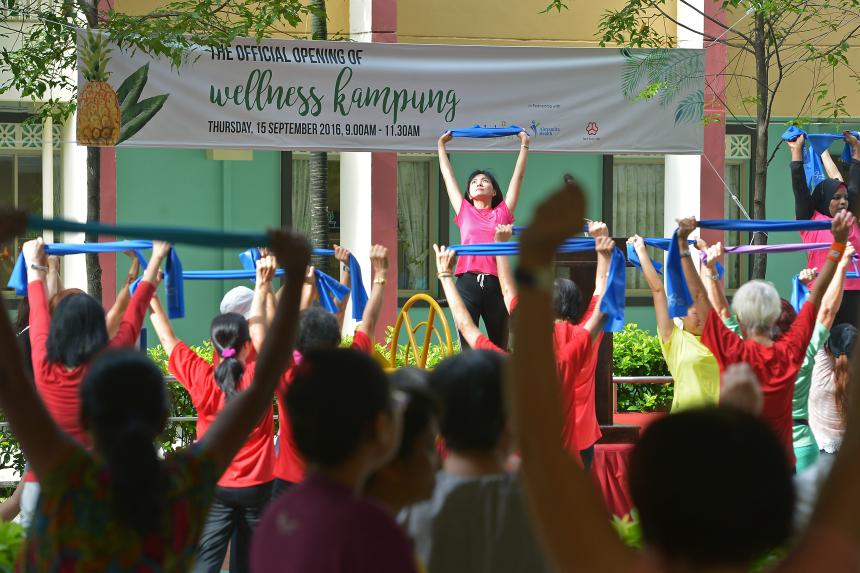SINGAPORE – Ordinary citizens can make an outsized impact in their community just by getting involved at a local level, panellists from the social sector said at a dialogue on Monday.
This was clear from various trials and programmes here that have used a community-led model, said some speakers at the inaugural Future-Ready Society Conference.
For instance, close to 100 volunteers and 23 organisations knocked on 2,100 doors in Tampines and Bedok, and identified 273 people with disabilities who were underserved in the community over five months.
This initiative was spearheaded by the first Enabling Services Hub (ESH), which opened in Tampines in August.
It has a satellite office in Bedok and works with partners and volunteer networks to provide regular house visits and befriending services to these people with disabilities, said Ms Chloe Huang, SG Enable’s director of service coordination and advice.
ESH works with many partners to organise activities, and it taps volunteer networks to provide regular house visits and befriending services to these people with disabilities. The hub also provides a place for those with disabilities and their caregivers to enjoy community activities and learn skills.
Ms Huang said: “The people part is important, because the space, no matter how well designed, is just a physical space. The people are what brings about a sense of connectedness to a space.”
Speaking at the same panel, Dr Wong Sweet Fun, deputy chairman of Khoo Teck Puat Hospital’s medical board, said the Wellness Kampung programme encourages seniors to stay active and healthy by providing a space for social engagement.
These wellness centres, launched in three HDB void decks in Yishun in 2016 and mainly run by residents, offer ways for the elderly to learn about healthy living through activities such as cooking demonstrations and exercise sessions.
Many of these seniors who utilise the wellness centres are always ready to be asked how to contribute to it, Dr Wong said.
They organise activities on their own and have conversations about what they envision their community to be like. “You can see that contribution gives people a sense of agency, purpose and meaning,” she noted.
“It’s just very localised, very ordinary daily engagement. But it yields, in the long term, extraordinary impact,” she said, adding that this reduces seniors’ reliance on system-delivered care.
The conference, organised by the Tote Board, the Lee Kuan Yew Centre for Innovative Cities and the Institute of Policy Studies (IPS) at the Singapore Marriott Tang Plaza Hotel, was attended by about 250 guests.
Dr Justin Lee, head of IPS Policy Lab, shared ideas on how future societies can be empowered through community-led initiatives, such as by harnessing hobbies.
For example, instead of going to the gym to keep up with their fitness, community members could instead help the elderly and those in need when they are moving house. Those interested in knitting could help make blankets for hospitals too, he added.
Another initiative could be a roving community innovation lab, which could go around neighbourhoods to spark innovation and solutions among residents.
The ultimate aim is to encourage local action by residents to build place-based communities, where people bound together by neighbourhood contribute to one another’s well-being, he said.
Correction note: An earlier version of this article stated that outreach efforts by volunteers and organisations had been carried out over two months. Such efforts had been ongoing for five months. We are sorry for the error.


